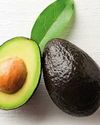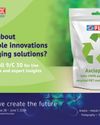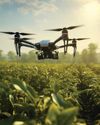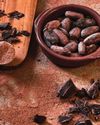Celiac disease is an autoimmune condition characterised by an inability to consume wheat protein, commonly known as gluten. Especially in western countries, the past years have seen the number of diagnosed celiac disease increase dramatically.

People afflicted by the celiac disease have to resort to gluten-free diets as there is no known treatment. In addition, health-conscious consumers who do not have any gluten intolerance or allergy issues are increasingly choosing gluten-free products, seeing them as a healthy alternative to gluten equivalents. Reducing or managing the intake of gluten is also commonly seen by consumers as beneficial to digestive health improvement as well as to manage/maintain a healthy weight. According to Euromonitor2, gluten-free is now an industry wide trend and the demand of glutenfree food products is set to increase tremendously in the future3.
Food manufacturers are more and more responding to the incredible demand in mainstream gluten-free products and are seeking to develop gluten-free food products such as bread, muffin or pastry. However, there are many challenges to overcome in the manufacturing of gluten-free baked goods, with the biggest hurdle being the difficulty to recreate the familiar textural characteristics of wheat-based bakery products.
Creating Gluten-Free Bakery Formulation
Initially, gluten-free bakery products were manufactured in smaller, independent (not part of large business chains) bakeries and sold in health food stores. Competition was low and as a result, so was the relative quality of these products. The first gluten-free products were created and purchased out of necessity, consumed by individuals who suffered from celiac disease. Without the use of flavouring or bakery formulation expertise, many of these products were lacking in taste and texture.
هذه القصة مأخوذة من طبعة March 2017 من Food Marketing & Technology - India.
ابدأ النسخة التجريبية المجانية من Magzter GOLD لمدة 7 أيام للوصول إلى آلاف القصص المتميزة المنسقة وأكثر من 9,000 مجلة وصحيفة.
بالفعل مشترك ? تسجيل الدخول
هذه القصة مأخوذة من طبعة March 2017 من Food Marketing & Technology - India.
ابدأ النسخة التجريبية المجانية من Magzter GOLD لمدة 7 أيام للوصول إلى آلاف القصص المتميزة المنسقة وأكثر من 9,000 مجلة وصحيفة.
بالفعل مشترك? تسجيل الدخول

Avocados: Health Benefits And Sustainable Cultivation
ATTRACTIVE GROWTH SEGMENT - In only a few years, the avocado has developed from being a rather a and has become an integral part of modern cuisine and in restaurants throughout Europe and beyond.

UFlex to Showcase Innovative and Sustainable Printing and Packaging solutions at DRUPA 2024
U Flex Limited, India's largest multinational flexible packaging and solutions company, is participating in DRUPA 2024, the premier global trade fair for print and packaging innovations, scheduled to take place in Dusseldorf, Germany from March 28 to June 7, 2024.

Hubergroup and Manroland Goss unite for Sustainable Packaging Innovation
Hubergroup, a global specialist in and chemicals, has partnered with manroland Goss web systems, a leading provider of web offset printing solutions, in a strategic collaboration.

Technological Advancements in the Premium Flavour, Extract and Concentrate Industry
Food Marketing & Technology Magazine had the privilege of hosting the fourth edition of their business webinar on “Technological Advancements in the Premium Flavour, Extract and Concentrate Industry” with Paul Ahn, Global Sales Manager, Flavourtech.

Flavourtech's Origins: From Wine to Worldwide Flavor Solutions
LEON SKALIOTIS, CEO of Flavourtech - Discover how Flavourtech, founded over 40 years ago by an innovative winemaker in Australia, evolved from addressing grape juice desulphiting to revolutionizing flavor extraction and concentration across various industries.

How CPG Companies Can Adopt Better Sustainable Packaging Practices in 2024
Sustainability has gone mainstream. With more switching to consumers environmentally friendly brands, it's become a central theme across all industries.

The Evolution of the Protein Value Chain Sustainable Protein Systems for a Growing World
As the world's population is on course to surpass ten billion by 2050, our food systems face the challenge of providing sustainable nutrition without further harming harming the planet. Animal-based diets and the reliance on animal-derived proteins are significant contributors to environmental degradation and public health issues. Not only is the global population increasing, but the expanding middle class in developing nations is driving a surge in protein demand, intensifying the strain on our environment.

Implementing the Technological Intelligence in Agricultural Produce
It is estimated that by 2050 the I world's population will be around 10 billion. From employment generation to contribution to National Income, agriculture is important to all of us as agricultural produce is the core on which we survive. It contributes a significant portion to the economic prosperity of the developed nations and plays an active part in the economy of the developing countries as well.

Cocoa Crises: A Sweet Industry's Bitter Challenge
As a pastry chef and entrepreneur running a small-scale baking business, I have always believed in the magic of cocoa. From the velvety richness of couverture chocolate to the deep, earthy notes of cocoa powder to the creamy allure of cocoa butter, these ingredients are the essence of our creations.

Ethylene Oxide (ETO) Detection in Ready-Made Spice Mixes: Ensuring Food Safety
INTRODUCTION - In the world of culinary delights, ready-made spice mixes hold a cherished place, adding convenience and flavour to countless dishes. However, recent concerns over food safety have brought to light the presence of ethylene oxide (ETO) in some of these products.